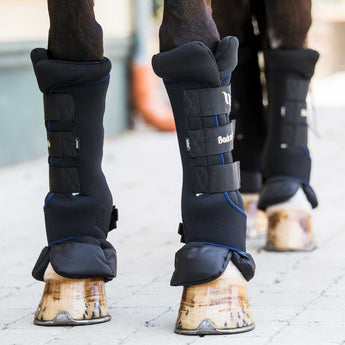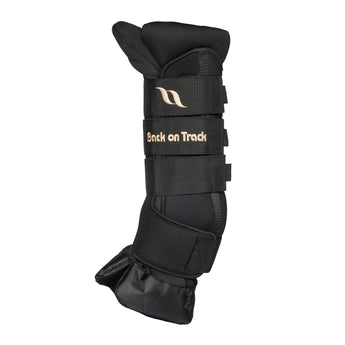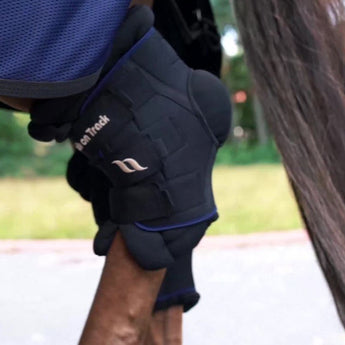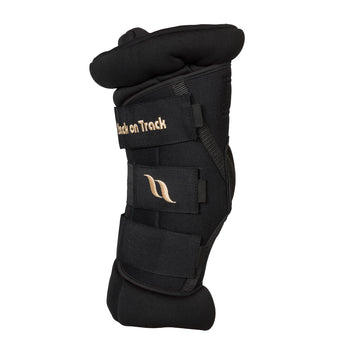Millions of equine enthusiasts worldwide enjoy the recreational benefits of horseback riding. This sport is often subject to public perception as a luxury hobby with little physical activity involved. In reality, horseback riding offers numerous health benefits, such as excellent physical exercise and effective mental therapy.
Equestrian Sport and Equine Therapy
The role of horses in civilization evolved significantly over millennia from beasts of burden to beloved pets and partners in sport. Today, these remarkable animals are also used to support physical and mental healing in equine-assisted therapy.
Origin of Horseback Riding
Man domesticated the horse thousands of years ago to serve as a mode of transportation. Horseback riding allowed humanity to travel faster over longer distances and provided a strategic advantage on the battlefield.
Horseback riding ultimately transitioned to a recreational activity after the automobile emerged as a preferential means of transportation. However, the military tradition of previous generations persists as the foundation for the equestrian sport witnessed in the Olympics today.
Modern Equestrian Sport
The recreational horse industry thrives worldwide. Over 6 million horses reside in the United States alone, and thousands of riders actively participate in equestrian competitions. People can engage in various disciplines or simply enjoy riding their horses for pleasure.
Equine-Assisted Therapy
The modern value of horses extends beyond hobbies and equestrian sports. Therapists use horses in equine-assisted therapy for individuals with special mental or physical needs. Benefits for patients may include improved coordination from sitting in the saddle or help processing anxiety with the calming influence of horses.
Horseback Riding Health Benefits
The application of horseback riding as a professional mental and physical health therapy demonstrates its proven value. However, riders do not have to be patient to experience health benefits from this activity.
Horseback riding is a unique sport that provides numerous physical and mental health benefits to participants, including:
- Stronger Core Muscles
- Improved Coordination
- Better Posture
- Stress Relief
- Enhanced Mood
- Increased focus
Physical Health Benefits
Despite the stereotype of riders as passive passengers, horseback riding involves significant physical effort. Maintaining balance on a horse cultivates impressive strength, remarkable coordination, and correct posture.
Stronger Core Muscles
Following the horse’s motion and avoiding an accidental dismount demands exceptional core strength. Horseback riding strengthens core muscles by cultivating strength through stabilizing exercises. The rider’s core must maintain dynamic stability in the saddle to enable their limbs to apply aids.
Improved Coordination
Riders communicate with specific aids, which consist of unique pressure applications from their legs, seat, and hands. Maintaining core stability and avoiding interference with the horse's movement requires incredible balance. Learning to achieve perfect balance while applying complex combinations of aids is an incredibly effective way to improve coordination.
Better Posture
Applying correct aids and maintaining balance is impossible without the proper position. Horseback riding increases body awareness and requires sitting upright in perfect alignment, allowing individuals to learn the correct posture. Most people spend their days hunched over at a desk, and increased body awareness can help relieve their back pain.
Mental Health Benefits
While some sports only provide physical health benefits, horseback riding offers unique benefits that significantly improve mental health.
Stress Relief
In equine-assisted therapy, horses possess a natural calming influence that therapists use to treat anxiety. Horse owners enjoy this mental health benefit by experiencing reduced stress when spending time with their pets. Equestrians often find that horseback riding offers a much-needed escape from the chaos of everyday life.
Enhanced Mood
Spending time with animals positively affects an individual’s mood due to the release of serotonin. Serotonin is a mood-enhancing hormone that contributes to feelings of happiness. Horseback riding is one of the few sports involving animals, allowing enthusiasts to benefit from increased serotonin levels. As a result, horseback riding enhances mood.
Increased Focus
Horseback riding is an incredibly complex and challenging pursuit that requires sharp focus. It can also be dangerous, and a lapse in concentration may result in an unexpected dismount. Participating in equestrian sports allows riders to test and improve their focus and mental fitness. Just remember to always wear a riding helmet!
Horseback Riding Benefits Physical and Mental Health
Horseback riding evolved from a necessary means of transportation into a fun recreational activity and popular sport. Despite its reputation, this unique and challenging pursuit provides riders with opportunities to improve their physical and mental health.
Physical therapists and psychologists understand the therapeutic value of spending time in the saddle and interacting with horses. However, these benefits do not belong solely to patients enrolled in professional programs. Horse lovers can experience the physical and mental health benefits of horseback riding by merely participating in their beloved hobby.
Prepare, Perform, Recover
Prepare for your next ride with our collections of riding apparel and riding helmets.
Back on Track helps equestrian athletes perform and recover at their best using advanced technology to support their health and safety. Learn more about the benefits of Welltex and MIPs to find out how.
Learn More from Back on Track
Follow Back on Track on Facebook and Instagram for more tips and insights.
Sign up for the Back on Track Bulletin to never miss a new blog.
References
- Malchrowicz-Mosko, E. et al. Perceived Benefits for Mental and Physical Health and Barriers to Horseback Riding Participation. The Analysis among Professional and Amateur Athletes. Int J Environ Res Public Health. 2020.
- Ward, J. et al. Mental health benefits of mounted equine-assisted therapies: A scoping review. Health Soc Care Community. 2022..
- Saez, I. et al. Health Benefits and Participation Barriers of Different Level Horseback Riders Age-Wise












